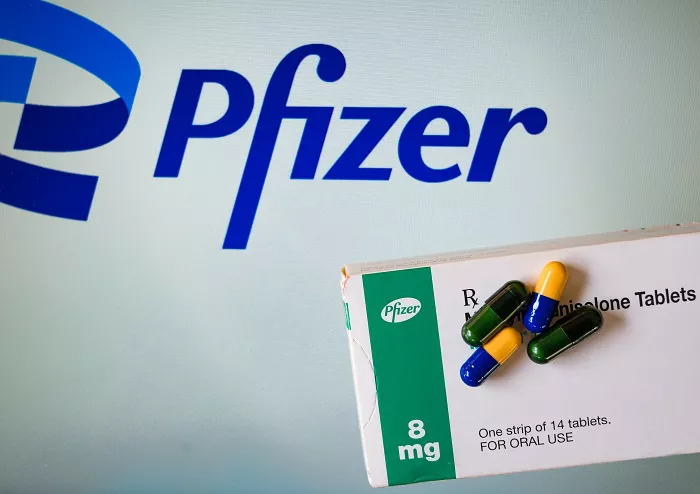Proteins are often hailed as the building blocks of life, and for good reason. These remarkable molecules are indispensable to the proper functioning of the human body, carrying out a multitude of essential tasks. From muscle development to enzyme catalysis, the role of protein in the body is nothing short of astonishing. In this comprehensive article, we will explore the multifaceted functions of protein within the human body, emphasizing the critical importance of these macromolecules in every aspect of our health and well-being.
Protein: The Fundamental Molecule
Proteins, as the name suggests, are of utmost significance when it comes to building and maintaining the body. They are not only the primary structural components of cells but also serve as dynamic workers, orchestrating an array of biological processes. To grasp the true essence of what protein does in the body, one must delve into its diverse roles.
Structural Support: The Scaffold of Life
One of the most apparent roles of protein in the body is providing structural support. In fact, proteins form the structural basis of all cells and tissues. Collagen, a fibrous protein, is abundant in the skin, bones, and tendons, giving these structures their strength and resilience. In muscles, contractile proteins such as actin and myosin enable movement by sliding past each other. Without these proteins, our bodies would lack the framework necessary for stability and mobility.
Proteins as Enzymes: The Catalysts of Life
Beyond their structural importance, proteins play a pivotal role in catalyzing biochemical reactions as enzymes. Enzymes are remarkable in their ability to speed up chemical reactions without being consumed in the process. Each enzyme is highly specific, acting on a particular substrate to facilitate a specific reaction. For instance, digestive enzymes like amylase and pepsin break down carbohydrates and proteins in the stomach and small intestine, respectively, enabling efficient nutrient absorption. Without these protein-based catalysts, vital metabolic processes would grind to a halt.
Transport and Communication: The Protein Messengers
Proteins also serve as messengers within the body, facilitating communication between cells and tissues. Hemoglobin, a protein found in red blood cells, exemplifies this role. Hemoglobin binds to oxygen in the lungs and transports it to tissues throughout the body, ensuring the oxygen supply essential for energy production. Additionally, membrane proteins act as receptors, transmitting signals from the external environment to the inside of the cell, thereby regulating various cellular processes.
Immune Defense: Protein’s Shield of Protection
The immune system heavily relies on proteins to defend the body against pathogens. Antibodies, also known as immunoglobulins, are specialized proteins produced by white blood cells. These proteins identify and neutralize harmful invaders such as bacteria and viruses. Without the immune proteins, our bodies would be defenseless against the constant threat of infection.
Proteins in Hormone Regulation: The Body’s Messengers
Hormones are pivotal for maintaining homeostasis within the body, and many hormones are, in fact, proteins. Insulin, produced by the pancreas, is a well-known protein hormone that regulates blood sugar levels. Growth hormone, thyroid-stimulating hormone (TSH), and many others are critical for growth, metabolism, and overall health. These protein messengers ensure that various physiological processes are finely tuned and balanced.
Protein’s Role in DNA: The Genetic Connection
Proteins are intimately involved in the regulation and expression of our genetic information. DNA-binding proteins, such as transcription factors, interact with DNA to control the transcription of genes into messenger RNA (mRNA). This step is vital in translating the genetic code into functional proteins that execute specific tasks within the body. Thus, without proteins, our genetic information would remain dormant and ineffective.
The Energy Reservoir: Proteins as a Last Resort
While carbohydrates and fats are the primary sources of energy, proteins can serve as an energy reservoir when necessary. In times of caloric deficit or prolonged physical exertion, the body may break down proteins to release amino acids for energy production. However, this process is typically reserved as a last resort, as it can lead to the degradation of essential proteins required for vital functions.
The Protein Paradox: Striking the Right Balance
While proteins are unquestionably vital, it’s crucial to strike the right balance in their consumption. Overconsumption of protein can strain the kidneys and potentially lead to health issues. On the other hand, insufficient protein intake can result in muscle wasting, impaired immune function, and overall poor health. Therefore, achieving an optimal protein intake is essential for maintaining well-being.
Protein Quality Matters: Complete vs. Incomplete
Not all proteins are created equal. They can be categorized as complete or incomplete based on their amino acid composition. Complete proteins, found in animal sources such as meat, fish, and dairy, contain all essential amino acids in sufficient quantities. Incomplete proteins, often found in plant sources, lack one or more essential amino acids. However, combining different plant protein sources, such as beans and rice, can create a complete protein profile. Thus, a well-balanced diet should include a variety of protein sources to ensure the body receives all essential amino acids.
Protein Requirements: Tailoring Intake to Individual Needs
Protein requirements vary from person to person and depend on factors such as age, sex, activity level, and overall health. Athletes and individuals engaged in strenuous physical activity may require more protein to support muscle repair and growth. Pregnant women and growing children also have increased protein needs to support fetal development and growth, respectively. It’s essential to consult with a healthcare professional or registered dietitian to determine your specific protein requirements and ensure a well-rounded diet.
Protein Myths and Misconceptions: Separating Fact from Fiction
In recent years, various myths and misconceptions about protein have emerged. Some claim that excessive protein intake leads to kidney damage, while others promote high-protein diets as a quick fix for weight loss. It’s crucial to dispel these misconceptions and base dietary choices on scientific evidence. Moderation and a balanced diet remain key principles for achieving and maintaining good health.
Protein Supplements: A Double-Edged Sword
The supplement industry has capitalized on the popularity of protein by offering a wide array of protein powders and supplements. While these products can be beneficial for athletes and those with specific dietary needs, they are not a substitute for whole food sources of protein. Whole foods provide essential nutrients, fiber, and other health benefits that supplements cannot replicate. It’s advisable to prioritize whole food sources of protein whenever possible and use supplements as a complementary measure.
Protein and Disease: Exploring the Connection
Research has unveiled intriguing links between protein and various health conditions. For example, insufficient protein intake can lead to a condition known as kwashiorkor, characterized by severe protein deficiency. Conversely, excessive protein intake has been associated with an increased risk of certain diseases, such as kidney stones and osteoporosis. It’s imperative to maintain a balanced protein intake to mitigate these risks and promote overall health.
Protein and Weight Management: The Satiety Factor
Protein’s role in weight management is a subject of considerable interest. Protein-rich foods have been shown to promote feelings of fullness and satiety, reducing overall calorie intake. This effect can be particularly advantageous for individuals seeking to manage their weight or make healthier dietary choices. Including protein-rich foods in meals and snacks may help curb cravings and prevent overeating.
Protein and Muscle Health: A Dynamic Relationship
Muscle health is intricately linked to protein intake. As individuals age, there is a natural decline in muscle mass and function, a condition known as sarcopenia. Adequate protein intake, coupled with resistance training, can help mitigate muscle loss and maintain physical strength. Therefore, older adults should pay particular attention to their protein intake to support healthy aging.
Protein and Recovery: The Post-Exercise Essential
For athletes and fitness enthusiasts, protein plays a crucial role in post-exercise recovery. During strenuous physical activity, muscle fibers sustain microscopic damage. Protein consumption after exercise provides the necessary amino acids for muscle repair and growth. Hence, incorporating protein-rich foods or supplements into the post-workout routine can enhance recovery and performance.
Protein and Mental Health: The Mind-Body Connection
Emerging research has begun to uncover the relationship between protein and mental health. Amino acids, the building blocks of proteins, are essential for the synthesis of neurotransmitters like serotonin and dopamine. These neurotransmitters play a vital role in mood regulation and overall mental well-being. Ensuring an adequate intake of protein can indirectly support mental health by facilitating neurotransmitter production.
Protein and Aging: A Fountain of Youth?
Aging is accompanied by various physiological changes, including a decline in muscle mass and bone density. Protein intake becomes increasingly important as individuals age to counteract these effects. Additionally, protein can contribute to healthy skin, hair, and nails. While protein may not be a true “fountain of youth,” it is undeniably a key player in promoting vitality and quality of life in later years.
Protein and Sustainable Eating: Balancing Health and Environment
As awareness of environmental sustainability grows, so does the consideration of the environmental impact of dietary choices. Animal agriculture, which produces many complete protein sources, is associated with significant environmental issues such as deforestation and greenhouse gas emissions. Exploring plant-based protein options, reducing meat consumption, and supporting sustainable farming practices are ways to balance personal health with environmental responsibility.
Conclusion
In conclusion, protein is undeniably the cornerstone of a healthy diet and a vital component of the human body. Its multifaceted roles, from structural support to enzymatic catalysis and hormonal regulation, make it indispensable to life itself. However, achieving the right balance of protein intake is key to reaping its benefits while avoiding potential pitfalls. As our understanding of protein’s diverse functions continues to expand, so too does our appreciation for the remarkable molecule that sustains us and keeps our bodies functioning at their best.
[inline_related_posts title=”You Might Be Interested In” title_align=”left” style=”list” number=”6″ align=”none” ids=”2280,2368,770″ by=”categories” orderby=”rand” order=”DESC” hide_thumb=”no” thumb_right=”no” views=”no” date=”yes” grid_columns=”2″ post_type=”” tax=””]


































